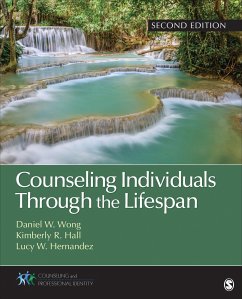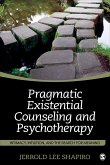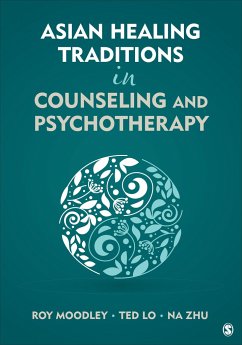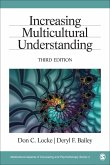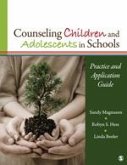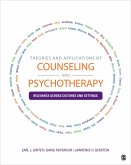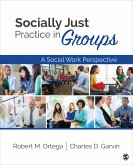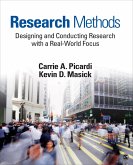- Broschiertes Buch
- Merkliste
- Auf die Merkliste
- Bewerten Bewerten
- Teilen
- Produkt teilen
- Produkterinnerung
- Produkterinnerung
Organized around the 2016 Council for Accreditation of Counseling and Related Educational Programs (CACREP) Standards, Counseling Individuals Through the Lifespan introduces readers to the fundamentals of the counseling process during each stage of human development.
Andere Kunden interessierten sich auch für
![Pragmatic Existential Counseling and Psychotherapy Pragmatic Existential Counseling and Psychotherapy]() Jerrold L ShapiroPragmatic Existential Counseling and Psychotherapy115,99 €
Jerrold L ShapiroPragmatic Existential Counseling and Psychotherapy115,99 €![Asian Healing Traditions in Counseling and Psychotherapy Asian Healing Traditions in Counseling and Psychotherapy]() Asian Healing Traditions in Counseling and Psychotherapy125,99 €
Asian Healing Traditions in Counseling and Psychotherapy125,99 €![Increasing Multicultural Understanding Increasing Multicultural Understanding]() Don C LockeIncreasing Multicultural Understanding115,99 €
Don C LockeIncreasing Multicultural Understanding115,99 €![Counseling Children and Adolescents in Schools Counseling Children and Adolescents in Schools]() Sandy MagnusonCounseling Children and Adolescents in Schools86,99 €
Sandy MagnusonCounseling Children and Adolescents in Schools86,99 €![Theories and Applications of Counseling and Psychotherapy Theories and Applications of Counseling and Psychotherapy]() Earl J GinterTheories and Applications of Counseling and Psychotherapy236,99 €
Earl J GinterTheories and Applications of Counseling and Psychotherapy236,99 €![Socially Just Practice in Groups Socially Just Practice in Groups]() Robert M OrtegaSocially Just Practice in Groups287,99 €
Robert M OrtegaSocially Just Practice in Groups287,99 €![Research Methods Research Methods]() Carrie A PicardiResearch Methods156,99 €
Carrie A PicardiResearch Methods156,99 €-
-
-
Organized around the 2016 Council for Accreditation of Counseling and Related Educational Programs (CACREP) Standards, Counseling Individuals Through the Lifespan introduces readers to the fundamentals of the counseling process during each stage of human development.
Hinweis: Dieser Artikel kann nur an eine deutsche Lieferadresse ausgeliefert werden.
Hinweis: Dieser Artikel kann nur an eine deutsche Lieferadresse ausgeliefert werden.
Produktdetails
- Produktdetails
- Verlag: Sage Publications
- 2nd edition
- Seitenzahl: 424
- Erscheinungstermin: 7. September 2020
- Englisch
- Abmessung: 254mm x 203mm x 23mm
- Gewicht: 862g
- ISBN-13: 9781544343242
- ISBN-10: 1544343248
- Artikelnr.: 58698296
- Herstellerkennzeichnung
- Produktsicherheitsverantwortliche/r
- Europaallee 1
- 36244 Bad Hersfeld
- gpsr@libri.de
- Verlag: Sage Publications
- 2nd edition
- Seitenzahl: 424
- Erscheinungstermin: 7. September 2020
- Englisch
- Abmessung: 254mm x 203mm x 23mm
- Gewicht: 862g
- ISBN-13: 9781544343242
- ISBN-10: 1544343248
- Artikelnr.: 58698296
- Herstellerkennzeichnung
- Produktsicherheitsverantwortliche/r
- Europaallee 1
- 36244 Bad Hersfeld
- gpsr@libri.de
Daniel W. Wong, Ph.D., is a Professor Emeritus of Mississippi State University (MSU). Prior to MSU, Dr. Wong was Professor and Director of the Doctoral Program in the Department of Rehabilitation Studies, College of Allied Health Sciences and Adjunct Professor in the Department of Physical Medicine and Rehabilitation at Brody School of Medicine at East Carolina University. Since 1987, he has taught at the University of North Texas, San Jose State University, Hofstra University, and the University of Hawaii at Manoa. Dr. Wong received the American Counseling Association (ACA) Research Award and the American Rehabilitation Counseling Association Research Award and he has published more than 80 peer reviewed articles, book chapters, and numerous disability-rehabilitation policy/position papers nationally and internationally.
Preface
Acknowledgments
About the Authors
PART I
Chapter 1. Human Development Through the Lifespan
The Counseling Connection
The Complexity of Human Development
Life Domains of Human Development
A Biopsychosocial Approach
Human Development Knowledge Applied to Counseling
Summary
Additional Resources
Recommended Supplemental Readings
References
Chapter 2. Theories of Human Development
Theories and Theoretical Models of Human Development
Cultural Diversity and Human Development
Seeking the Truth: Research Methodologies
Rules Governing Human Subjects Research
Research Contributing to a Counselor's Identity
Summary
Additional Resources
Recommended Supplemental Readings
References
PART II
Chapter 3. Conception and Prenatal Development
Healthy Prenatal Development
Risks to Healthy Prenatal Development
Counseling Issues
Summary
Additional Resources
Recommended Supplemental Readings
References
Chapter 4. Infancy (Birth to 24 Months Old)
Healthy Infant Development
Counseling Issues
Summary
Additional Resources
Recommended Supplemental Readings
References
Chapter 5. Toddlerhood (Ages 1 to 3)
Healthy Toddler Development
Risks to Healthy Toddler Development
Counseling Issues
Summary
Additional Resources
Recommended Supplemental Readings
References
Chapter 6. Preschool: Early School Age (Ages 3 to 6)
Healthy Preschool Development
Risks to Healthy Preschool Development
Counseling Issues
Summary
Additional Resources
Recommended Supplemental Readings
References
Chapter 7. Middle Childhood (Ages 6 to 12)
Healthy Middle Childhood Development
Cognitive Development
Social Development
Moral Development
Emotional Development
Counseling Issues
Cultural Diversity
A Time of Wonder
Summary
Additional Resources
Recommended Supplemental Readings
References
PART III
Chapter 8. Early Adolescence (Ages 13 to 18)
Healthy Early Adolescence Development
Self-Concept and Self-Esteem in Early Adolescence
Counseling Issues
Current Counseling Trends
Cultural Diversity
A Time of Storm and Stress, as well as Wonder and Awe
Summary
Additional Resources
Recommended Supplemental Readings
References
Chapter 9. Late Adolescence (Ages 19 to 25)
Healthy Late Adolescence Development
Emotional and Social Development
Alcohol and Drug Use
College: A Unique Arena for Emerging Adulthood
College: Choosing Not to Go to College and Returning Home After College
Counseling Issues
Cultural Diversity
Summary
Additional Resources
Recommended Supplemental Readings
References
Chapter 10. Early Emerging Adulthood (Ages 26 to 35)
Healthy Early Adulthood Development
Risks to Healthy Early Adulthood Development
Counseling Issues
Conclusion
Summary
Additional Resources
Recommended Supplemental Readings
References
Chapter 11. Middle Adulthood (Ages 36 to 60)
A Period of Recent Recognition
Changes in Middle Adulthood
Midlife Crisis or Midlife Transition
Generativity Versus Stagnation
Person-Environment, Culture Interaction, and Socioeconomic Status
Counseling Issues
Summary
Additional Resources
Recommended Supplemental Readings
References
PART IV
Chapter 12. Late Adulthood (Ages 61 to 75)
Responding to the Counseling Needs of a Growing Aging Population
The Aging Process
Aging: A Natural Transition and a Factor in Counseling
Counseling Clients in Late Adulthood
Summary
Additional Resources
Recommended Supplemental Readings
References
Chapter 13. Oldest-Old Elderhood (Ages 75 and Over)
Understanding Quality of Life and Life Satisfaction in Old Age
Adjustment to Advanced Aging
Emotional Impact of Chronic Illness and Disability
Psychosocial Crisis
Gerontological Counseling Expertise
Cultural Competence
Summary
Additional Resources
Recommended Supplemental Readings
References
Epilogue From the Author's Chair
Matrix of Core Curricular Experiences
Glossary
Index
Acknowledgments
About the Authors
PART I
Chapter 1. Human Development Through the Lifespan
The Counseling Connection
The Complexity of Human Development
Life Domains of Human Development
A Biopsychosocial Approach
Human Development Knowledge Applied to Counseling
Summary
Additional Resources
Recommended Supplemental Readings
References
Chapter 2. Theories of Human Development
Theories and Theoretical Models of Human Development
Cultural Diversity and Human Development
Seeking the Truth: Research Methodologies
Rules Governing Human Subjects Research
Research Contributing to a Counselor's Identity
Summary
Additional Resources
Recommended Supplemental Readings
References
PART II
Chapter 3. Conception and Prenatal Development
Healthy Prenatal Development
Risks to Healthy Prenatal Development
Counseling Issues
Summary
Additional Resources
Recommended Supplemental Readings
References
Chapter 4. Infancy (Birth to 24 Months Old)
Healthy Infant Development
Counseling Issues
Summary
Additional Resources
Recommended Supplemental Readings
References
Chapter 5. Toddlerhood (Ages 1 to 3)
Healthy Toddler Development
Risks to Healthy Toddler Development
Counseling Issues
Summary
Additional Resources
Recommended Supplemental Readings
References
Chapter 6. Preschool: Early School Age (Ages 3 to 6)
Healthy Preschool Development
Risks to Healthy Preschool Development
Counseling Issues
Summary
Additional Resources
Recommended Supplemental Readings
References
Chapter 7. Middle Childhood (Ages 6 to 12)
Healthy Middle Childhood Development
Cognitive Development
Social Development
Moral Development
Emotional Development
Counseling Issues
Cultural Diversity
A Time of Wonder
Summary
Additional Resources
Recommended Supplemental Readings
References
PART III
Chapter 8. Early Adolescence (Ages 13 to 18)
Healthy Early Adolescence Development
Self-Concept and Self-Esteem in Early Adolescence
Counseling Issues
Current Counseling Trends
Cultural Diversity
A Time of Storm and Stress, as well as Wonder and Awe
Summary
Additional Resources
Recommended Supplemental Readings
References
Chapter 9. Late Adolescence (Ages 19 to 25)
Healthy Late Adolescence Development
Emotional and Social Development
Alcohol and Drug Use
College: A Unique Arena for Emerging Adulthood
College: Choosing Not to Go to College and Returning Home After College
Counseling Issues
Cultural Diversity
Summary
Additional Resources
Recommended Supplemental Readings
References
Chapter 10. Early Emerging Adulthood (Ages 26 to 35)
Healthy Early Adulthood Development
Risks to Healthy Early Adulthood Development
Counseling Issues
Conclusion
Summary
Additional Resources
Recommended Supplemental Readings
References
Chapter 11. Middle Adulthood (Ages 36 to 60)
A Period of Recent Recognition
Changes in Middle Adulthood
Midlife Crisis or Midlife Transition
Generativity Versus Stagnation
Person-Environment, Culture Interaction, and Socioeconomic Status
Counseling Issues
Summary
Additional Resources
Recommended Supplemental Readings
References
PART IV
Chapter 12. Late Adulthood (Ages 61 to 75)
Responding to the Counseling Needs of a Growing Aging Population
The Aging Process
Aging: A Natural Transition and a Factor in Counseling
Counseling Clients in Late Adulthood
Summary
Additional Resources
Recommended Supplemental Readings
References
Chapter 13. Oldest-Old Elderhood (Ages 75 and Over)
Understanding Quality of Life and Life Satisfaction in Old Age
Adjustment to Advanced Aging
Emotional Impact of Chronic Illness and Disability
Psychosocial Crisis
Gerontological Counseling Expertise
Cultural Competence
Summary
Additional Resources
Recommended Supplemental Readings
References
Epilogue From the Author's Chair
Matrix of Core Curricular Experiences
Glossary
Index
Preface
Acknowledgments
About the Authors
PART I
Chapter 1. Human Development Through the Lifespan
The Counseling Connection
The Complexity of Human Development
Life Domains of Human Development
A Biopsychosocial Approach
Human Development Knowledge Applied to Counseling
Summary
Additional Resources
Recommended Supplemental Readings
References
Chapter 2. Theories of Human Development
Theories and Theoretical Models of Human Development
Cultural Diversity and Human Development
Seeking the Truth: Research Methodologies
Rules Governing Human Subjects Research
Research Contributing to a Counselor's Identity
Summary
Additional Resources
Recommended Supplemental Readings
References
PART II
Chapter 3. Conception and Prenatal Development
Healthy Prenatal Development
Risks to Healthy Prenatal Development
Counseling Issues
Summary
Additional Resources
Recommended Supplemental Readings
References
Chapter 4. Infancy (Birth to 24 Months Old)
Healthy Infant Development
Counseling Issues
Summary
Additional Resources
Recommended Supplemental Readings
References
Chapter 5. Toddlerhood (Ages 1 to 3)
Healthy Toddler Development
Risks to Healthy Toddler Development
Counseling Issues
Summary
Additional Resources
Recommended Supplemental Readings
References
Chapter 6. Preschool: Early School Age (Ages 3 to 6)
Healthy Preschool Development
Risks to Healthy Preschool Development
Counseling Issues
Summary
Additional Resources
Recommended Supplemental Readings
References
Chapter 7. Middle Childhood (Ages 6 to 12)
Healthy Middle Childhood Development
Cognitive Development
Social Development
Moral Development
Emotional Development
Counseling Issues
Cultural Diversity
A Time of Wonder
Summary
Additional Resources
Recommended Supplemental Readings
References
PART III
Chapter 8. Early Adolescence (Ages 13 to 18)
Healthy Early Adolescence Development
Self-Concept and Self-Esteem in Early Adolescence
Counseling Issues
Current Counseling Trends
Cultural Diversity
A Time of Storm and Stress, as well as Wonder and Awe
Summary
Additional Resources
Recommended Supplemental Readings
References
Chapter 9. Late Adolescence (Ages 19 to 25)
Healthy Late Adolescence Development
Emotional and Social Development
Alcohol and Drug Use
College: A Unique Arena for Emerging Adulthood
College: Choosing Not to Go to College and Returning Home After College
Counseling Issues
Cultural Diversity
Summary
Additional Resources
Recommended Supplemental Readings
References
Chapter 10. Early Emerging Adulthood (Ages 26 to 35)
Healthy Early Adulthood Development
Risks to Healthy Early Adulthood Development
Counseling Issues
Conclusion
Summary
Additional Resources
Recommended Supplemental Readings
References
Chapter 11. Middle Adulthood (Ages 36 to 60)
A Period of Recent Recognition
Changes in Middle Adulthood
Midlife Crisis or Midlife Transition
Generativity Versus Stagnation
Person-Environment, Culture Interaction, and Socioeconomic Status
Counseling Issues
Summary
Additional Resources
Recommended Supplemental Readings
References
PART IV
Chapter 12. Late Adulthood (Ages 61 to 75)
Responding to the Counseling Needs of a Growing Aging Population
The Aging Process
Aging: A Natural Transition and a Factor in Counseling
Counseling Clients in Late Adulthood
Summary
Additional Resources
Recommended Supplemental Readings
References
Chapter 13. Oldest-Old Elderhood (Ages 75 and Over)
Understanding Quality of Life and Life Satisfaction in Old Age
Adjustment to Advanced Aging
Emotional Impact of Chronic Illness and Disability
Psychosocial Crisis
Gerontological Counseling Expertise
Cultural Competence
Summary
Additional Resources
Recommended Supplemental Readings
References
Epilogue From the Author's Chair
Matrix of Core Curricular Experiences
Glossary
Index
Acknowledgments
About the Authors
PART I
Chapter 1. Human Development Through the Lifespan
The Counseling Connection
The Complexity of Human Development
Life Domains of Human Development
A Biopsychosocial Approach
Human Development Knowledge Applied to Counseling
Summary
Additional Resources
Recommended Supplemental Readings
References
Chapter 2. Theories of Human Development
Theories and Theoretical Models of Human Development
Cultural Diversity and Human Development
Seeking the Truth: Research Methodologies
Rules Governing Human Subjects Research
Research Contributing to a Counselor's Identity
Summary
Additional Resources
Recommended Supplemental Readings
References
PART II
Chapter 3. Conception and Prenatal Development
Healthy Prenatal Development
Risks to Healthy Prenatal Development
Counseling Issues
Summary
Additional Resources
Recommended Supplemental Readings
References
Chapter 4. Infancy (Birth to 24 Months Old)
Healthy Infant Development
Counseling Issues
Summary
Additional Resources
Recommended Supplemental Readings
References
Chapter 5. Toddlerhood (Ages 1 to 3)
Healthy Toddler Development
Risks to Healthy Toddler Development
Counseling Issues
Summary
Additional Resources
Recommended Supplemental Readings
References
Chapter 6. Preschool: Early School Age (Ages 3 to 6)
Healthy Preschool Development
Risks to Healthy Preschool Development
Counseling Issues
Summary
Additional Resources
Recommended Supplemental Readings
References
Chapter 7. Middle Childhood (Ages 6 to 12)
Healthy Middle Childhood Development
Cognitive Development
Social Development
Moral Development
Emotional Development
Counseling Issues
Cultural Diversity
A Time of Wonder
Summary
Additional Resources
Recommended Supplemental Readings
References
PART III
Chapter 8. Early Adolescence (Ages 13 to 18)
Healthy Early Adolescence Development
Self-Concept and Self-Esteem in Early Adolescence
Counseling Issues
Current Counseling Trends
Cultural Diversity
A Time of Storm and Stress, as well as Wonder and Awe
Summary
Additional Resources
Recommended Supplemental Readings
References
Chapter 9. Late Adolescence (Ages 19 to 25)
Healthy Late Adolescence Development
Emotional and Social Development
Alcohol and Drug Use
College: A Unique Arena for Emerging Adulthood
College: Choosing Not to Go to College and Returning Home After College
Counseling Issues
Cultural Diversity
Summary
Additional Resources
Recommended Supplemental Readings
References
Chapter 10. Early Emerging Adulthood (Ages 26 to 35)
Healthy Early Adulthood Development
Risks to Healthy Early Adulthood Development
Counseling Issues
Conclusion
Summary
Additional Resources
Recommended Supplemental Readings
References
Chapter 11. Middle Adulthood (Ages 36 to 60)
A Period of Recent Recognition
Changes in Middle Adulthood
Midlife Crisis or Midlife Transition
Generativity Versus Stagnation
Person-Environment, Culture Interaction, and Socioeconomic Status
Counseling Issues
Summary
Additional Resources
Recommended Supplemental Readings
References
PART IV
Chapter 12. Late Adulthood (Ages 61 to 75)
Responding to the Counseling Needs of a Growing Aging Population
The Aging Process
Aging: A Natural Transition and a Factor in Counseling
Counseling Clients in Late Adulthood
Summary
Additional Resources
Recommended Supplemental Readings
References
Chapter 13. Oldest-Old Elderhood (Ages 75 and Over)
Understanding Quality of Life and Life Satisfaction in Old Age
Adjustment to Advanced Aging
Emotional Impact of Chronic Illness and Disability
Psychosocial Crisis
Gerontological Counseling Expertise
Cultural Competence
Summary
Additional Resources
Recommended Supplemental Readings
References
Epilogue From the Author's Chair
Matrix of Core Curricular Experiences
Glossary
Index

